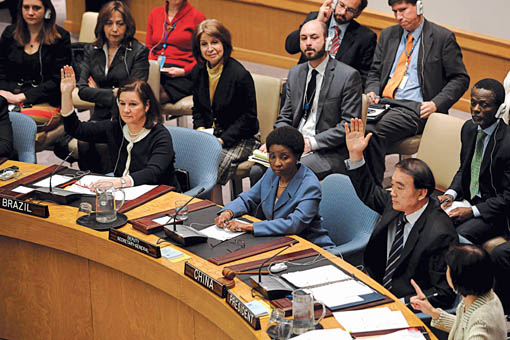A shift of the global balance of power is under way. Emerging countries are increasingly playing significant roles on global issues, such as the global economy, trade, and investment, as well as in diplomacy and multilateral decision making.
In a few years, we will witness a historically rare phenomenon, when a new country will become the world’s largest economy. China’s GDP will soon become the largest in the world, overtaking the United States. The last time the world’s number one economy changed was in the nineteenth century, when the U.S. economy surpassed the United Kingdom’s.
Another remarkable trait of contemporary international relations is the unprecedented reduction of poverty on a global scale—with Brazil experiencing a steep decline in social inequality in the past years—making the eradication of extreme poverty an attainable goal worldwide.
It is possible that, by 2030, a majority of the world’s population will be able to enjoy a middle class standard of living, an achievement unparalleled in human history.
However, this will not eliminate the significant gap in living standards that will continue to exist between developed and developing countries, such as China and India, even though they will probably become the world’s first and second largest economies in terms of GDP by 2050.
Even as emerging countries are increasingly able to tilt the balance, the so-called “established powers” will still play a major role globally. These countries will continue to have diversified economies, formidable technological capacity and, in the case of the U.S., the ability to hold, for decades to come, far superior military power. Yet, there is no question that the relative power of the G8 countries has declined and, with it, their capacity to lead.





